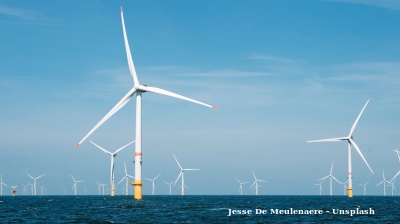The rapid shallowing of the Caspian Sea has become an international crisis, Kazakh President Kassym-Jomart Tokayev warned during his September 8 state-of-the-nation address.
Tokayev called for urgent collective action under an intergovernmental response programme.
The sea has been in steady decline since the early 2000s. It dipped below 29 metres relative to global sea level during the summer this year — a historic low. The northern basin, shared by Russia and Kazakhstan, is drying fastest due to falling inflows from the Volga River, the longest river in Europe, which drains into the Caspian Sea near the southern Russian city of Astrakhan. If the sea level falls too far, sea lanes might become too shallow for cargo shipping.
Engaging Russia – difficult given Moscow’s preoccupation with its war in Ukraine –could prove key to addressing the fate of the sea. As described by bne IntelliNews in April, more than 80% of the Caspian’s inflow comes from the Volga, a river that is extensively dammed and regulated along its course in Russia. The damming structures, numbering in the dozens, hold back substantial volumes of water for hydropower, irrigation and industrial use before the river reaches its delta. Additional outflows through the Volga-Don Canal further reduce water available to the Caspian basin.
“The need to develop an intergovernmental programme to preserve the Caspian Sea has matured,” Tokayev said in his annual address, stressing that the challenge extends beyond the five states with a Caspian Sea coast — Kazakhstan, Russia, Iran, Azerbaijan and Turkmenistan — and requires wider international participation.
Studies as yet are inconclusive, but changes in precipitation linked to climate change also seem to be taking a heavy toll on the Caspian Sea. Those devising schemes to remedy its plight, meanwhile, even include an Azerbaijani company that has proposed building a 700-kilometere (436-mile) tunnel or canal that would connect the Black Sea and Caspian.
The Kazakh leader said that during his recent visit to China, he proposed the creation of a dedicated international organisation in the battle to help the Caspian Sea.
Tokayev also touched on domestic water difficulties, noting that irrigation and channel losses in Kazakhstan reach 50–60% and that resource accounting relies on outdated methods. He called for a unified AI-powered digital platform for monitoring and water balance planning to underpin a long-term national water strategy.
Environmental safety, he said, should become part of Kazakhstan’s national ideology.
Highlighting the Taza Kazakhstan campaign, which has cleared 860,000 hectares of land and planted over 4mn trees since 2024, he argued that sustained action could make Kazakhstan “a truly green country, an inspiring example and a valuable legacy for future generations.”
bneGREEN

The Arctic and Antarctica record "off the charts" heat as polar warming accelerates
Parts of both the Arctic and Antarctic have experienced historically high temperatures in recent weeks, with weather stations in East Antarctica recording record-breaking warmth for the month of October, alarming climate scientists.

Giant glacier chunk breaks away in Tajikistan, mountain villages put on alert
Situation serves as reminder that climate crisis threatens to wreak havoc in Central Asian country.

Singapore’s green pivot – headline grabbing but still limited
Forays into offshore wind via regional cooperation with neighbours, and forward-looking bets on hydrogen and low-carbon fuels are making headlines, but the scale required to wean a heavily gas-dependent system off fossil fuels is still daunting.

North Macedonia's Skopje tackles mounting waste and rodent crisis
Locals say the problems in Skopje's Centar municipality worsened during the local election period when political campaigning took precedence over maintenance.




_seen_here_meeting_with_Congressman_Jimmy_Panetta_201025_Cropped_1760946356.jpg)